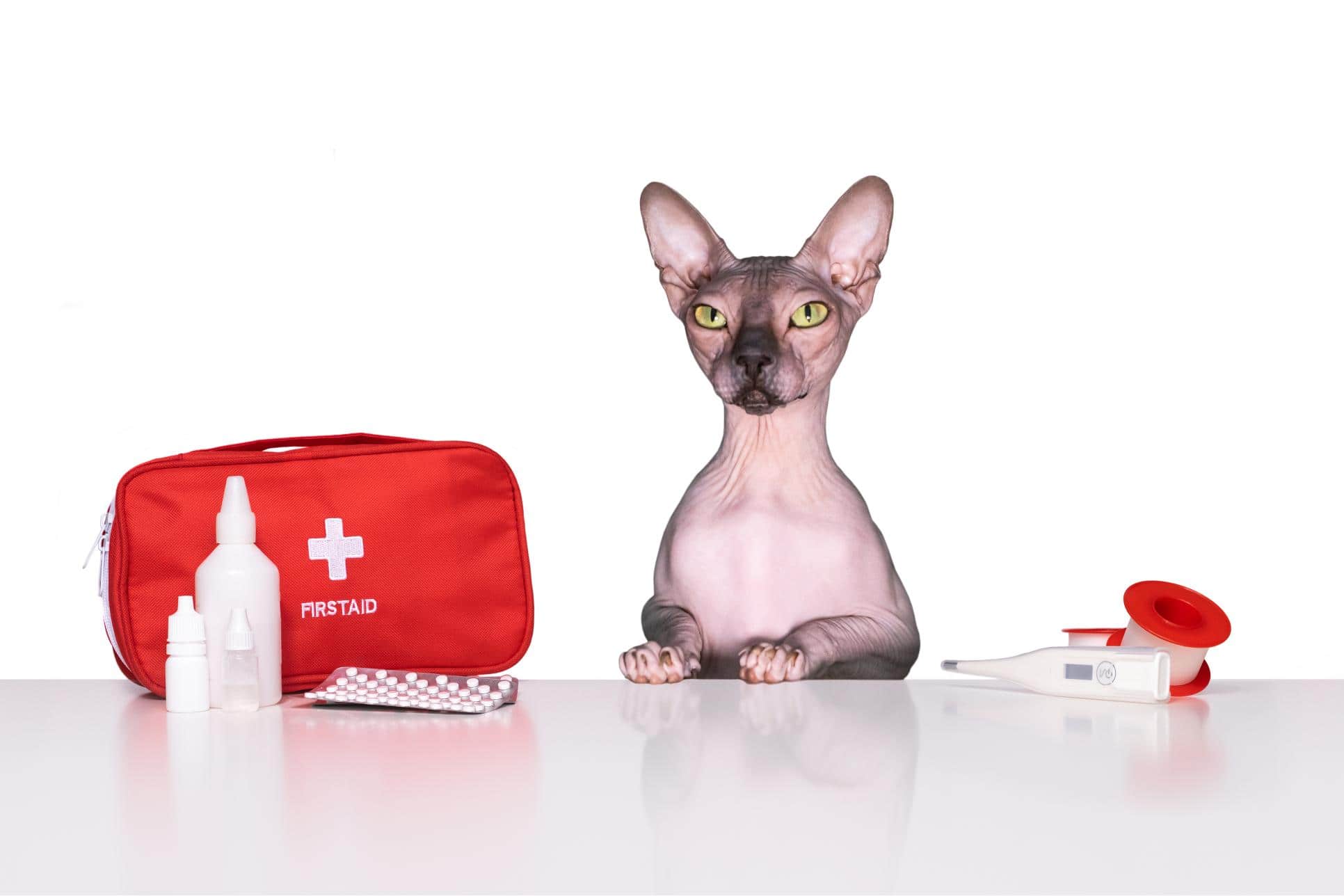Emergency Tips To Save Your Pet’s Life

No one wants to think about, let alone plan for, an emergency situation, but how pet owners react to a sudden illness or injury can lead to a successful outcome. Because a pet’s sudden illness or injury can become totally overwhelming, it’s essential to have a road map to rely on. In addition to a fully outfitted pet first-aid kit, we encourage pet owners to embrace our pet emergency tips. When a pet needs your help the most, you’ll be ready with all the planning and preparation for such an eventuality.
The Right Stuff at the Right Time
You may never need to use some of the items suggested for a pet first-aid kit, but it’s better to have them. Collect the following items and place them in a sealed container in a spot that is easy to reach:
- Disposable gloves
- Digital thermometer
- Tweezers
- Flashlight
- Blunt-ended scissors for cutting bandages
- Non Stick bandages
- Self-adhering tape
- Gauze roll and square patches
- Strips of clean cloth
- Towels
- Backup leash, collar, and muzzle (to prevent bites)
- Oral syringe or eye dropper
- Sterile lubricating jelly (for rectal thermometer or to protect eyes and wounds)
- Saline solution
- Activated charcoal (to absorb poison) and hydrogen peroxide (to induce vomiting), only use under the advice of your pet’s vet
Finish out the kit with a copy of your pet’s medical records, prescriptions, microchip number, and a recent photo of them.
It’s vitally important to learn how to administer pet first aid using supplies from your kit. Any issues that require pet first aid should always be addressed as soon as possible by your pet’s vet.
Common Pet Medical Emergencies
Of the many possible issues facing pets, the following are considered the most common problems necessitating emergency assistance:
- Poisoning/exposure to toxins
- Physical injury (from a bite, fall, vehicle collision)
- Heatstroke
- Seizures
- Choking
- Respiratory problems
- Loss of consciousness/no heartbeat
Pet CPR
Cardiopulmonary resuscitation, a lifesaving process including chest compression and rescue breaths, is an essential component of pet first aid. We encourage all pet owners to find a pet CPR class taught by qualified trainers either online or nearby.
Prioritizing Personal Safety
An animal experiencing a scary, painful medical emergency may react in unpredictable, uncharacterized ways. Even a typically sweet, easy-going pet in pain can become aggressive when approached. The instinct to protect and comfort them may lead to soft touches or hugs, but it is crucial to guard against any potential bites or scratches.
Watch their body language closely. Keep your face and hands away from their mouth. Gently place a muzzle on them to avoid further self-protective actions. A DIY stretcher made of blankets or towels can keep them (and you) safe during transport.
Pet Medical Emergency
If you have any questions or concerns about pet first aid, please give us a call at (540) 832-1751. Our team at Crossroads Animal Hospital is always here to help.
